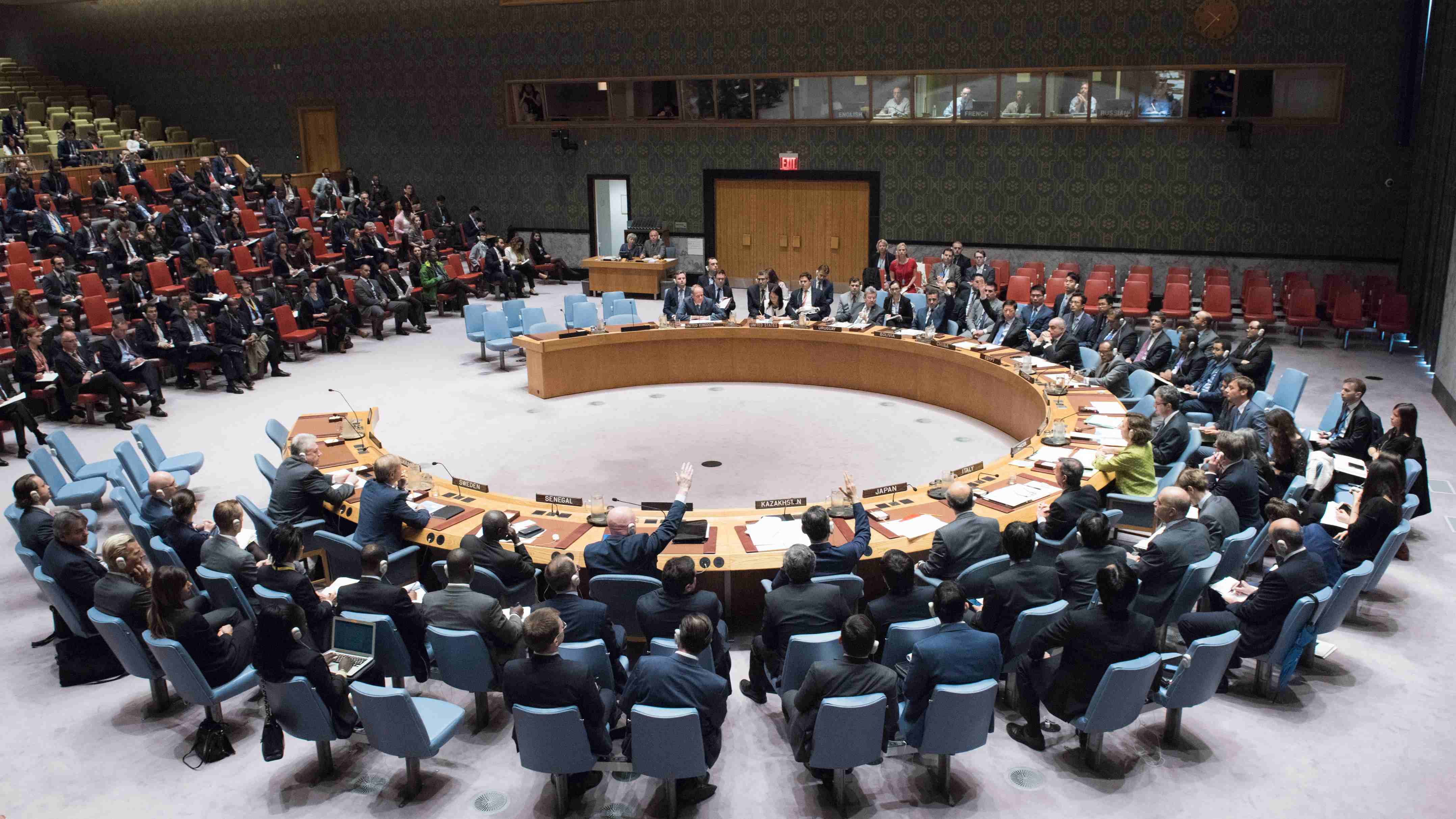The United Nations Security Council (UNSC) was split on Tuesday over a US-drafted resolution that sought an extension of a probe into chemical weapon attacks in Syria, with Russia and Bolivia voting against the document while China and Kazakhstan abstained. The US document was supported by 11 votes in the 15-member UN body.
Russia vetoed the US-sponsored draft resolution that sought to extend the mandate of the Joint Investigative Mechanism (JIM) of the United Nations and the Organization for the Prohibition of Chemical Weapons (OPCW) for another year.
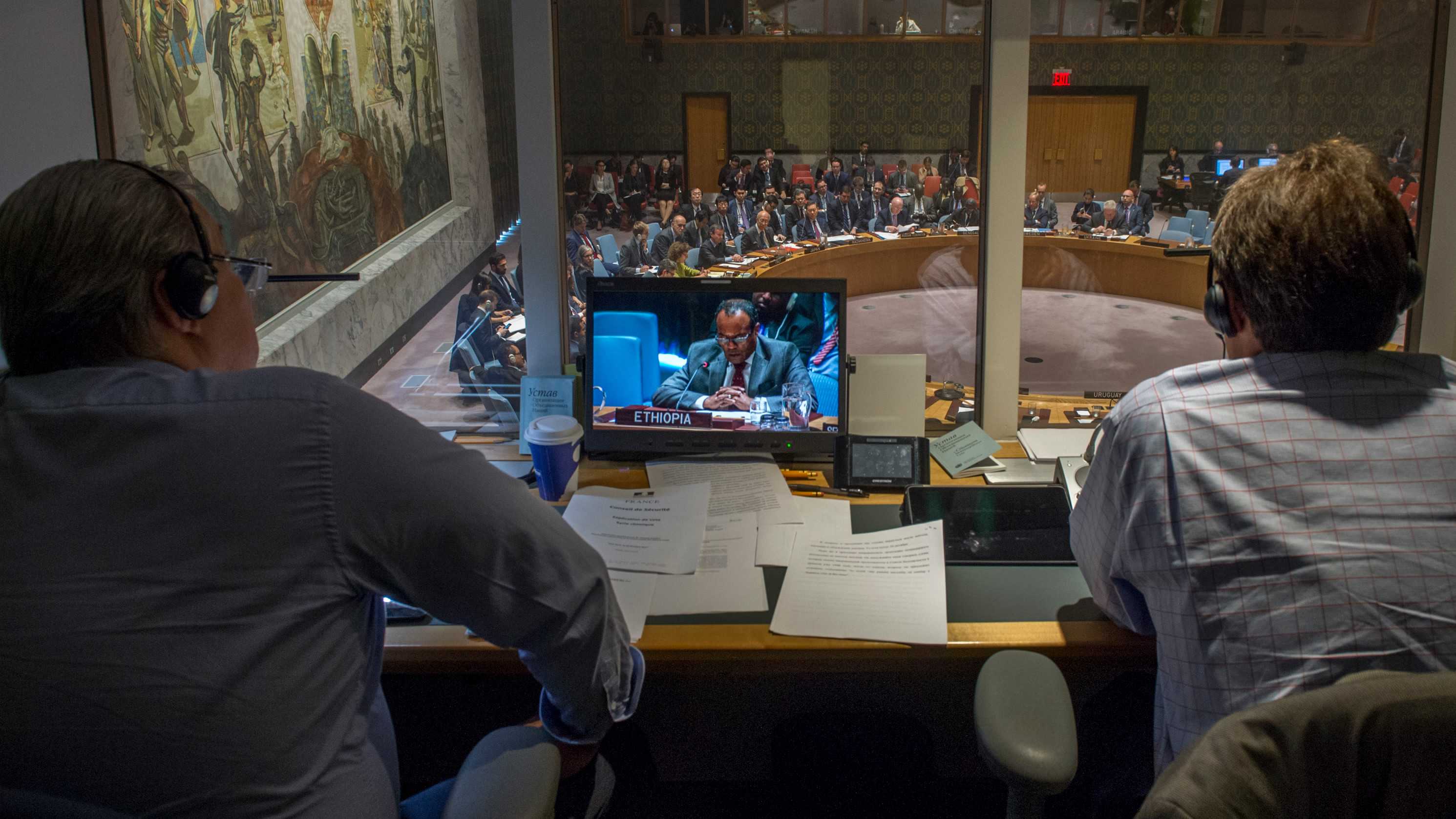
A view of the UN Security Council meeting from the Russian interpreters’ booth at the UN headquarters in New York, US, October 24, 2017. /United Nations Photo
A view of the UN Security Council meeting from the Russian interpreters’ booth at the UN headquarters in New York, US, October 24, 2017. /United Nations Photo
The JIM was set up on the initiative of Russia and the US in 2015 to identify the perpetrators of chemical attacks in Syria’s six-year war. The joint UN-OPCW panel is expected to release a report on Thursday on the April 4 sarin gas attack in Khan Sheikhun.
While Moscow proposed hearing the mission’s findings before voting on the draft resolution on Tuesday, Washington pushed vehemently for a Security Council vote on its mandate knowing well that it stands no chance of passing. The current mandate for JIM representatives to work in Syria expires on November 17.
‘A well-rehearsed performance’
Russia’s UN envoy Vasily Nebenzya described Tuesday’s exercise as “a well-rehearsed performance” and told the Security Council that the hasty vote was intended to embarrass Moscow.
"What is taking place today is not very pleasant," said Nebenzya. "It stinks, in fact."
"We are seeing a well-rehearsed spectacle, which only strives to show up and embarrass one country," he added.
Nebeznya said he was "amused at how some delegations had read their prepared statements condemning the use of other countries' veto power [ahead of the actual voting process].”
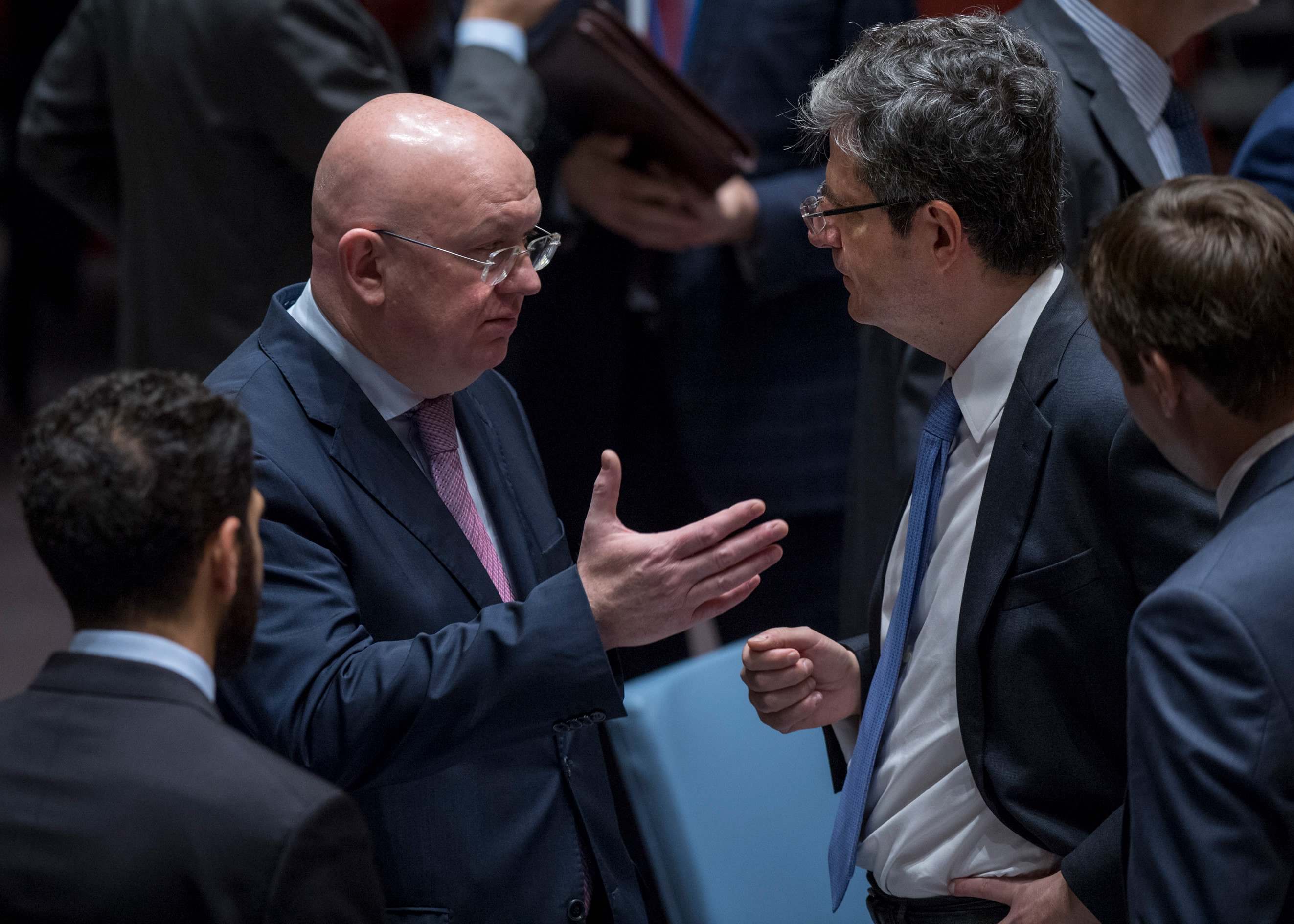
Russia’s UN envoy Vasily Nebenzya (left) speaks with his French counterpart François Delattre at the UN Security Council meeting at the UN headquarters in New York, US, October 24, 2017. /United Nations Photo
Russia’s UN envoy Vasily Nebenzya (left) speaks with his French counterpart François Delattre at the UN Security Council meeting at the UN headquarters in New York, US, October 24, 2017. /United Nations Photo
The Russian diplomat also expressed regret that the main players behind the resolution have chosen "the course of confrontation and split within the Security Council," RT reported. Nebenzya added that Russia will get back to the issue of the probe's mandate after the JIM report is released. “We will return to this matter... [we] will examine what the mandate of JIM should be so that it fulfills its work in a professional, objective and impartial way," he told the Security Council.
Earlier on Monday, the Russian Foreign Ministry had questioned the US demands for extending the probe, saying the hastily-drafted resolution "looks at the very least strange."
“It is necessary to act in accordance with an established practice, when a UN structure's report is first studied, and then a question on a mandate's prolongation is discussed,” the ministry said in a statement on Monday, condemning the "hyped up hysteria" on the issue.
China: Lack of consensus not conducive for UNSC
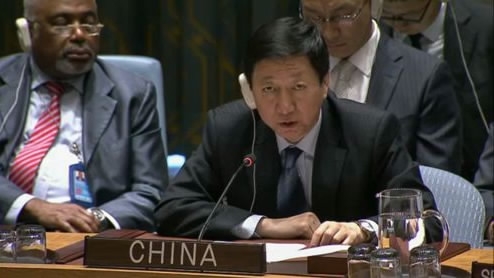
A file photo of the charge d'affaires at the Chinese permanent mission to the UN Wu Haitao. /Xinhua Photo
A file photo of the charge d'affaires at the Chinese permanent mission to the UN Wu Haitao. /Xinhua Photo
China, which abstained from the vote, regretted that the UNSC “rushed to vote in the absence of a consensus.”
The charge d'affaires at the Chinese permanent mission to the UN Wu Haitao said that the draft resolution contains positive elements, but also issues of concern by certain members of the council. The council could have continued consultation so that the text wins unanimous support, he said.
"Regrettably, however, the council rushed to vote on the draft resolution in the absence of consensus," Haitao said, noting that the practice is not conducive to unity of the Security Council. The Chinese diplomat however asserted that Beijing is opposed to the use of chemical weapons and supports JIM..
US leads anti-Russia campaign
After Tuesday’s vote, the US led a fierce Western campaign against Russia.
Washington’s UN envoy Nikki Haley, in a statement released through her mission, said Russia's veto "once again demonstrated it will do whatever it takes to ensure the barbaric [Bashar] Assad regime [in Syria] never faces consequences for its continued use of chemicals as weapons."
"By rejecting the renewal of the work of the Joint Investigative Mechanism... Russia has made it clear that it does not care about stopping the use of chemical weapons in the world."
British ambassador to the UN Matthew Rycroft noted that it was Russia that initiated JIM. He accused Russia of abusing its veto power to side with Syria, which he said has no regard for international norms.
French ambassador to UN Francois Delattre said Russia's veto is a lost opportunity for the international community and called for a renewal of the mandate for JIM.
What happened in Khan Sheikhun?
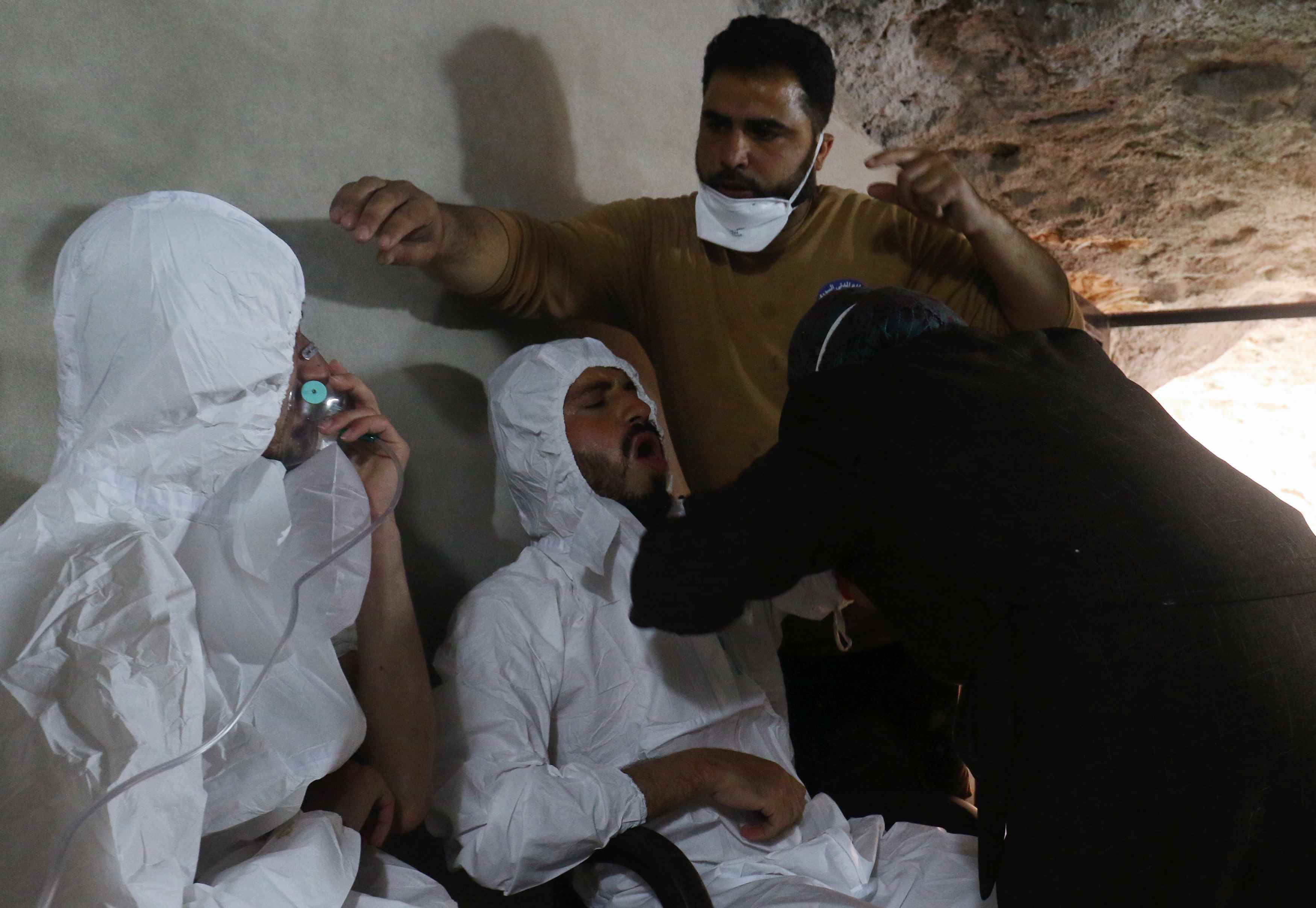
Victims of a gas attack in the town of Khan Sheikhun in rebel-held Idlib, Syria in April, 2017. /Reuters Photo
Victims of a gas attack in the town of Khan Sheikhun in rebel-held Idlib, Syria in April, 2017. /Reuters Photo
On April 4, more than 87 people, including children died in a nerve gas attack in Khan Sheikhun that drew global outrage. Britain, France and the US have accused Syrian President Bashar al Assad's forces of carrying out the attack on the village in control of Western-backed opposition forces, who are considered as militants by both Russia and Syria.
Washington launched 59 Tomahawk missiles at Syria's Shayrat Airbase in response to the alleged chemical attack, which it blamed on the Syrian government.
The previous investigation report, released by the OPCW in June, stated that traces of sarin had been found in soil samples. Moscow warned that the report had many flaws and could not be deemed conclusive.
Russia maintains that the sarin attack was most likely caused by a bomb set off directly on the ground, not by a Syrian air strike as alleged by the West.
Moscow has also cited the fact that the JIM mission never actually visited the site of the alleged attack but their experts relied on evidence collected by militant groups controlling the area. “The mission also failed to properly inspect the Shayrat Airbase, Moscow said, explaining that while the experts visited the Syrian airfield, they did not collect ground samples there.
In April when the attack took place, the area of Khan Sheikhun was under the control of Tahrir al-Sham, also known as Al-Nusra Front terrorist group.
But didn’t Syria destroy its chemical weapons in 2014?
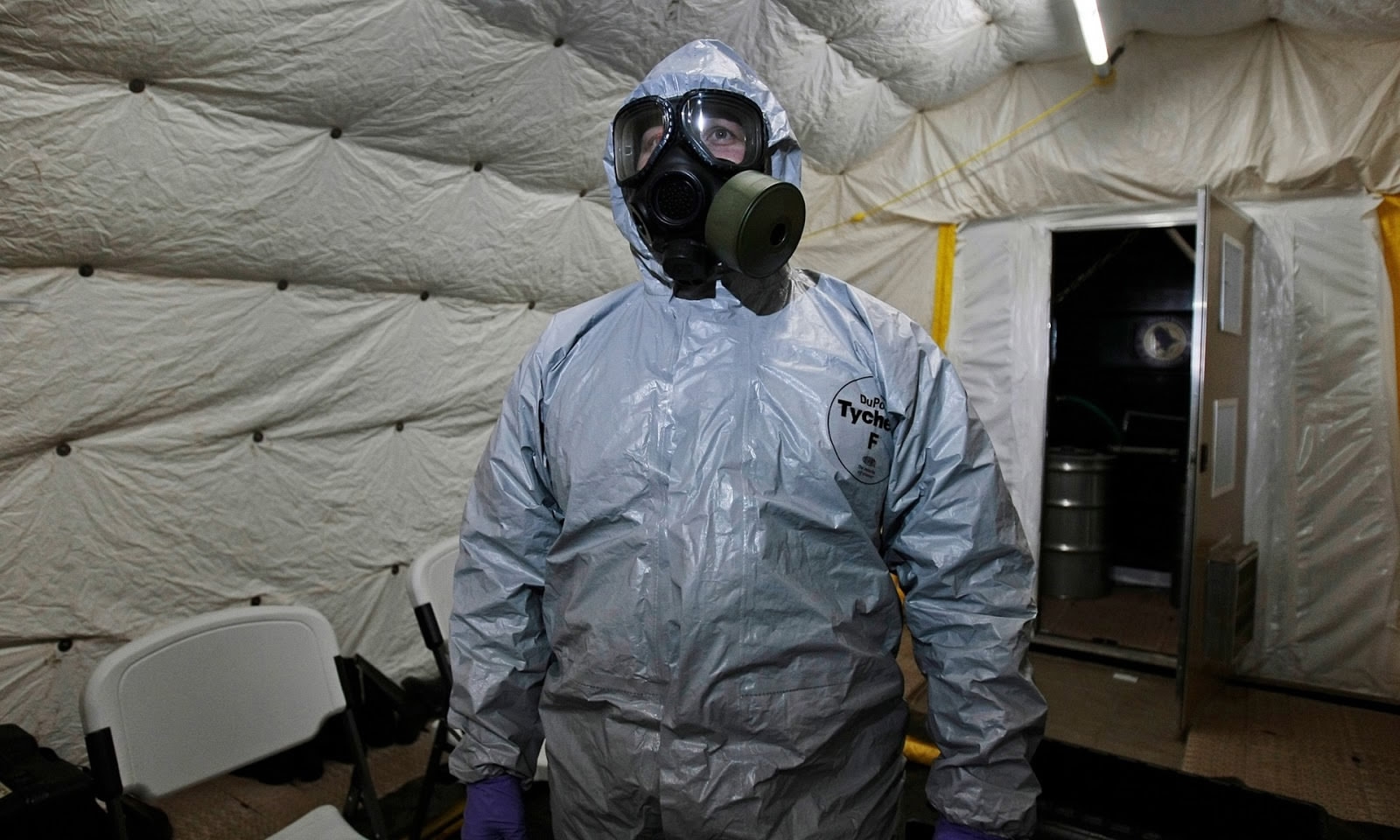
A US officer in a chemical weapons disposal suit. /AP Photo
A US officer in a chemical weapons disposal suit. /AP Photo
It is worth noting that under a deal brokered by Russia in September 2013 following the then US president Barack Obama’s threat of military action against the Syrian government, Damascus destroyed all its declared chemical weapons by the mid-2014.
It was widely reported by the international media that on June 23, 2014, Syria handed over the last stock of toxic material to OCPW.
“A major landmark in this mission has been reached today. The last of the remaining chemicals identified for removal from Syria were loaded this afternoon aboard the Danish ship Ark Futura,” the OCPW chief Ahmet Uzumcu was quoted by Reuters as telling a news conference in The Hague on June 23, 2014.
Later in August 18, 2014, the Obama administration declared that US military and civilian personnel had completed the destruction of the Syrian government’s declared chemical weapon stockpile, “heralding the neutralization of chemical agents aboard an American ship as a watershed moment in the Syrian conflict,” The Washington Post reported.
The completion of the effort, President Obama said in a statement, “advances our collective goal to ensure that the Assad regime cannot use its chemical arsenal against the Syrian people and sends a clear message that the use of these abhorrent weapons has consequences and will not be tolerated by the international community.”
Obama’s Secretary of State John Kerry went on to say that “in record time, even amid a civil war, we removed and have now destroyed the most dangerous chemicals in the regime’s declared stockpiles.”
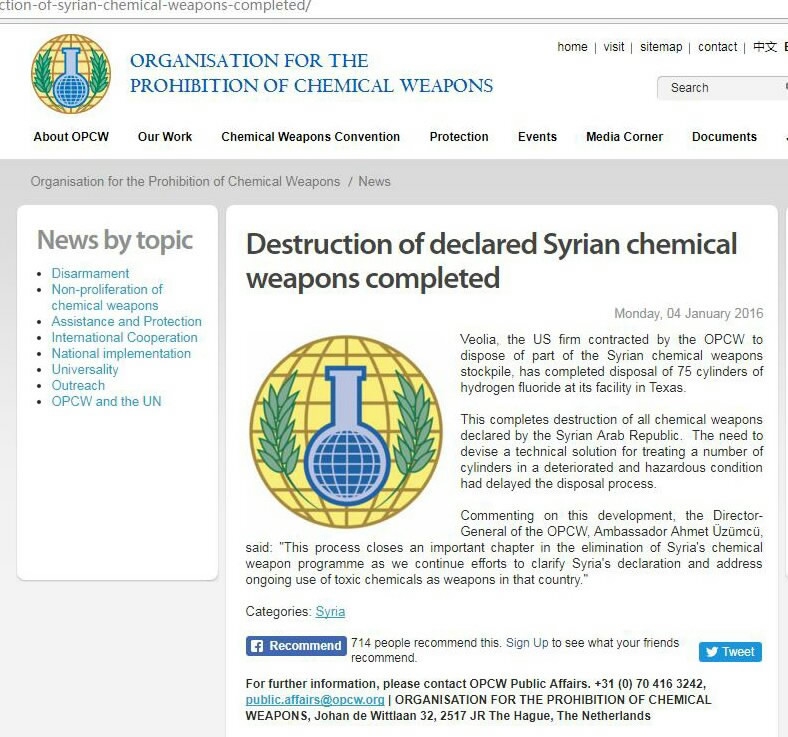
A screenshot of OCPW's statement posted on its official website declaring the completion of destruction of declared Syrian chemical weapons.
A screenshot of OCPW's statement posted on its official website declaring the completion of destruction of declared Syrian chemical weapons.
The OCPW issued a final confirmation on January 4, 2016 saying that the process of Syrian chemical weapons destruction was completed.
“Veolia, the US firm contracted by the OPCW to dispose of part of the Syrian chemical weapons stockpile, has completed disposal of 75 cylinders of hydrogen fluoride at its facility in Texas. This completes destruction of all chemical weapons declared by the Syrian Arab Republic,” the OCPW statement said.
"This process closes an important chapter in the elimination of Syria's chemical weapon program as we continue efforts to clarify Syria's declaration and address ongoing use of toxic chemicals as weapons in that country," the statement quoted OCPW chief Uzumcu as saying.
It is curious that the West continues to blame Damascus for alleged chemical weapons attacks, even after its own leaders and the global chemical weapons watchdog have previously acknowledged that the Assad government has eliminated its chemical arsenal.
(With input from agencies)

